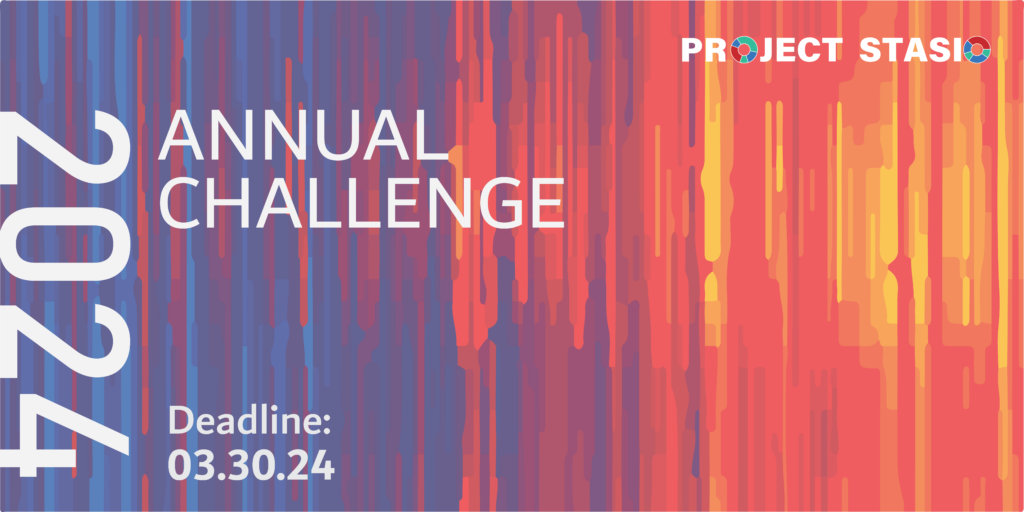2024 Annual Project StaSIO Challenge - Deadline 03.30.24
January 18, 2024 - November 22, 2024
Sample Questions
This competition is accepting submission on all topics related to high performance building design. We invite you to review published StaSIO graphics to get inspired. Some sample questions your submission may be addressing include:
- What is the impact of massing on a building's embodied carbon?
- What is the impact of heat recovery efficiency on cooling peak loads?
- What is the impact of tress selection on outdoor pedestrian comfort?
Submission Guidelines
The objective of this competition is to catalyze crowd-sourced submissions to Project StaSIO.
For your submission, you will be required to identify the building performance question that is being answered through the graphic, by following the format What is the impact of <insert design variable> on <insert metric>?
The updated submission guidelines for the 2024 competition are:
-
- Question format: The question submitted should follow the required format (be careful not to confuse design variables and metrics!)
- Legibility: The graphic should be legible (upload only jpg, png, or gif graphics that are of high quality and high resolution)
- Amount of text: The graphic should speak for itself: it should not have any titles or paragraphs elaborating on methodology, discussion, or conclusions. Conference-like poster submissions will not be accepted.
- North arrow: The graphic, particularly if it involves any variables impacted by solar position or radiation, must have a visible north arrow.
Submissions will be judged based on the following four criteria:
-
- Clarity: the graphic’s ability to convey complex information concisely
- Innovation: the uniqueness of the graphic
- Insightfulness: the effectiveness with which the graphic is answering the question it was designed for
- Aesthetic design: the visual composition of the graphic
If you have any questions please reach out to our team!
ibpsaprojectstasio@gmail.com
Meet the Jury:
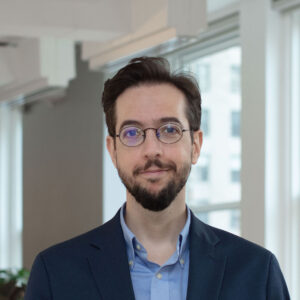
Carlos Cerezo is a building science expert, researcher and KPF’s Head of Sustainability, where he leads KPF’s inhouse Building Performance team. His work focuses on coordinating global sustainability initiatives and developing new environmental analysis tools for design. He has led the design for a carbon neutral ready campus in Guangzhou, an electric laboratory in NYC, and climate resilient district in Boston. Carlos holds Masters from Seville University and Harvard University, and a PhD from MIT (2017). He has contributed to numerous research publications and has been a guest lecturer at MIT’s Center for Real Estate (MIT CRE) since 2022.
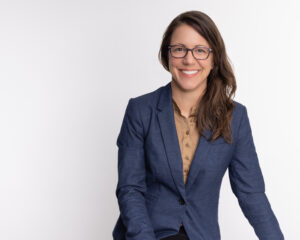
Kristy M. Walson, PE, LEED Fellow, BEMP, is a seasoned mechanical engineer specializing in decarbonization strategy and sustainable design for the built environment. With 15 years of experience, she offers consultancy, energy modeling, and commissioning services across the US. Kristy holds degrees from Virginia Tech and the University of Michigan, leveraging software like IES VE-Pro and Equest for precise energy analysis. Dedicated to sustainability, she volunteers for various organizations, including the University of Florida and the US Green Building Council. Outside work, Kristy enjoys volleyball, running, and traveling with her husband and three children.
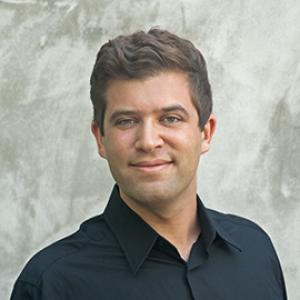
Timur Dogan is an Associate Professor in Cornell University’s Department of Architecture and the director of the M.Arch. Program and the Environmental Systems Lab. Dogan holds a Ph.D. from MIT, an MDES from Harvard GSD, and a Dipl. Ing. in architecture with distinction from the Technical University Darmstadt. Dogan’s mission with Cornell and the Environmental Systems Lab is to enhance the knowledge of sustainable building technologies through innovative educational programming and strategic research at the intersection of design, computer science, building performance simulation, and urban geospatial analysis. His research expertise is in daylighting, energy modeling, passive climate control strategies, and performance-driven design workflows at urban and architectural scales. The Environmental Systems Lab’s research outcomes are sustainable design analysis methods, workflows, teaching concepts, computer-based design tools, and building component prototypes.
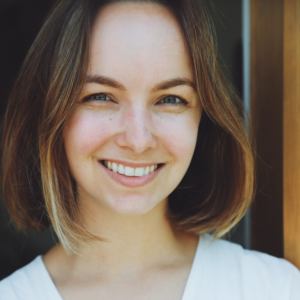
Kate Bren, a performance consultant at Cyclone Energy Group, performs life cycle assessments and energy modeling, leads Living Future audits, and explores new software and workflows to increase team efficiency. Kate complements the firm’s work with compelling visualizations and stories. Before joining Cyclone, Kate consulted on best practices for resilient, passive, and mechanical systems at Positive Energy. Kate is an Austin, Texas resident and a graduate of the University of Texas at Austin with bachelor degrees in Architecture and Architectural Engineering. She is a living future accredited professional and is on track to receive her Professional Engineering license in 2025.

